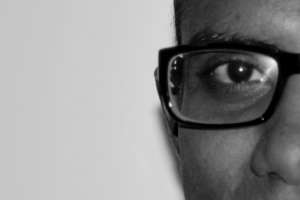I am at a loss for words.
24 hours a day, 7 days a week, 365 days a year for 5 years, every day, through snow, wind, rain, no matter what, she’s always there.
She says “I’m not strong, I am soft but determined, as my friends say.”
And she certainly is, she is one of the most determined people I have ever met.
Her nose was frozen, I could catch a glimpse of iced drops inside her red nostrils. But she didn’t seem to mind the cold, while words poured out of her lips hanging on a cloud of smoke.
Babs Tucker, as everyone calls her, has been living and peace campaigning in front of the House of Parliament for the last 1825 days. Since December 2005, she has been living in a tent protesting against the troops in Iraq and Afghanistan.
“Strength comes from within and we all have strength and weaknesses” she smiles while pulling out a hand from her glove to make herself a cigarette.
When asked how she got to the point when she decided that this is what she wanted to do, she answered
“ I think it is the journey you have through life. And what you see and experience.
Life experience
“I was brought up in a military background. My father went off to war when he was young, and he said they thought it was going to be a wonderful adventure. But when they got there, they were terrified and he told me the truth about his experience.
“Also when I was young I was in Gaza and Palestine, and young people like me used to tell me to tell the world they had no hope. I was always haunted by the thought of what happened to these people the same age as me.
“That is when you say enough is enough. Then you stand up and take responsibility. You should have the confidence to stand up and say when something is wrong. If you value human life, you want justice for everybody. If you want change you have to do something about it.
“The first time I said no, I was standing in a queue and a police man told me that I didn’t need to stand in the queue, I asked why and he told me ‘because you’re not an Arab’ so I stayed in the queue. No, I was not going to be part of this.
“Being here is like a PHD in life. It just works here is what I’ve learned.
“Have I changed my view? No.”
Her previous life
Barbara was a normal member of the public as she herself says, she worked as a carer and had two sons. Now aged 28 and 20, they are very supportive of her.
Once when they arrested me, they said to my son ‘Your mum has been arrested‘, and he answered ‘Oh well my mum is always being arrested, what’s new?’ and he said to me as ‘long as there is column in the daily telegraph slagging you, then you know you are making a difference.” She laughs when remembering her son’s words.
She has been arrested 39 times since she first started her protest. But the thought of being arrested doesn’t discourage her at all.
“As a woman and as a mother I will speak out for my fellow human beings.
“Caring about human lives is a bit like an extension of being a mother for me.”
As she speaks, I cannot help wondering how this woman’s efforts will make the difference. I cannot help myself asking her…… what do you think you can change? Do you think you can change the world?
“ I’m not the saviour of the world. I do know I am responsible. None of us has all the answers, none of us can do everything. Each one of us can do something. And if each one does something we’ll crack it. If we care enough.”



